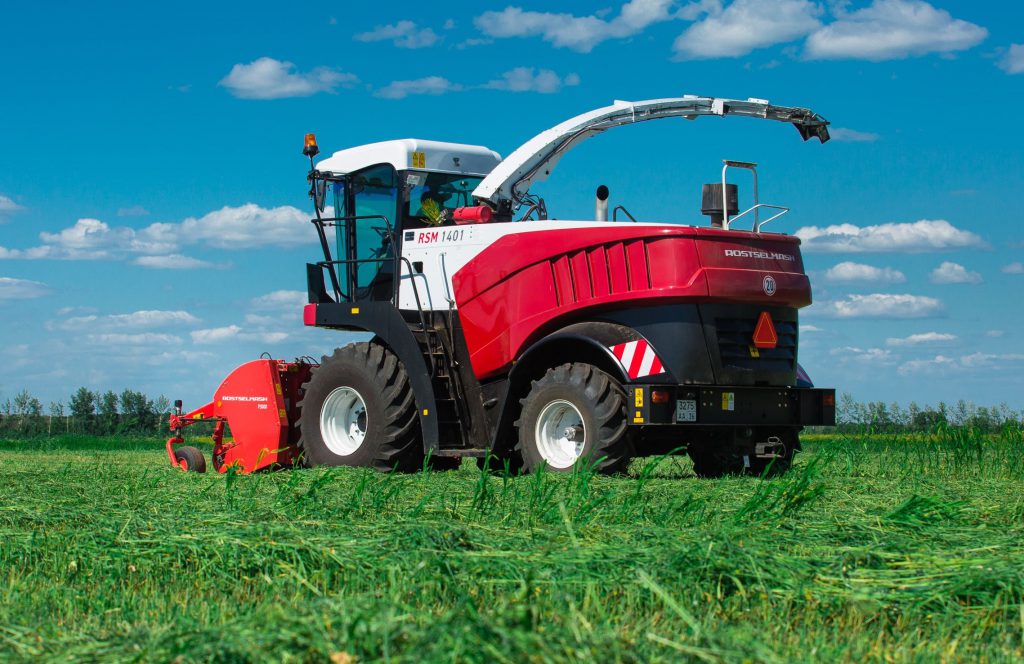Russian giant Rostselmash has been busy staging demonstrations of its harvesting equipment around Europe this summer.
Recently, for example, the manufacturer organised working demonstrations in Germany to showcase its self-propelled forage harvesters – specifically the RSM 1403 (a slightly less powerful RSM 1401 is pictured above).
According to Rostselmash, it can produce “about 170t of silage per hour”.
The demo was hosted by Agrar GmbH Oldisleben – a business that already runs other Rostselmash machines.
It’s just one small example of the efforts being made by the sprawling company to boost brand awareness outside of its traditional markets.
Brand new forager
In other Rostselmash news, the company recently unveiled a brand new self-propelled forage harvester – the RSM F 2650.
One such machine is pictured below; it was unveiled at last November’s Agritechnica show in Germany.
It is powered by a Mercedes 632hp engine. Claimed chop-length varies between 4mm and 22mm, courtesy of a 630mm-wide drum (chopping cylinder).
The fuel tank can hold 1,500L. Top whack on the road is 40kph. Rostselmash claims that it is the least expensive machine in its performance class to buy – by a considerable margin.
Harvester-making giant
Rostselmash is a manufacturer of some considerable scale. The company produces large numbers of combines – and also self-propelled foragers – for its native market and the surrounding regions.
Since taking over Versatile – a Canadian-based tractor manufacturer – back in 2007, Rostselmash is now badging some of its machines as ‘Versatile’ harvesters.
This has led to increasing sales in the western world, especially North America and parts of Europe.
The entity’s origins go back to the late 1920s; its first products were basic implements, including ploughs.
By 1930, the decision had been made to embark on the manufacture of grain harvesters; the first being dubbed the ‘Kolkhoz’. This machine was quickly followed by newer and better harvesters – called the ‘Stalinets’. These machines not only tackled wheat but also sunflower seeds and other crops.
By 1932, thanks to the efforts of Rostselmash, Russia had become a net exporter, rather than an importer, of such machines.



